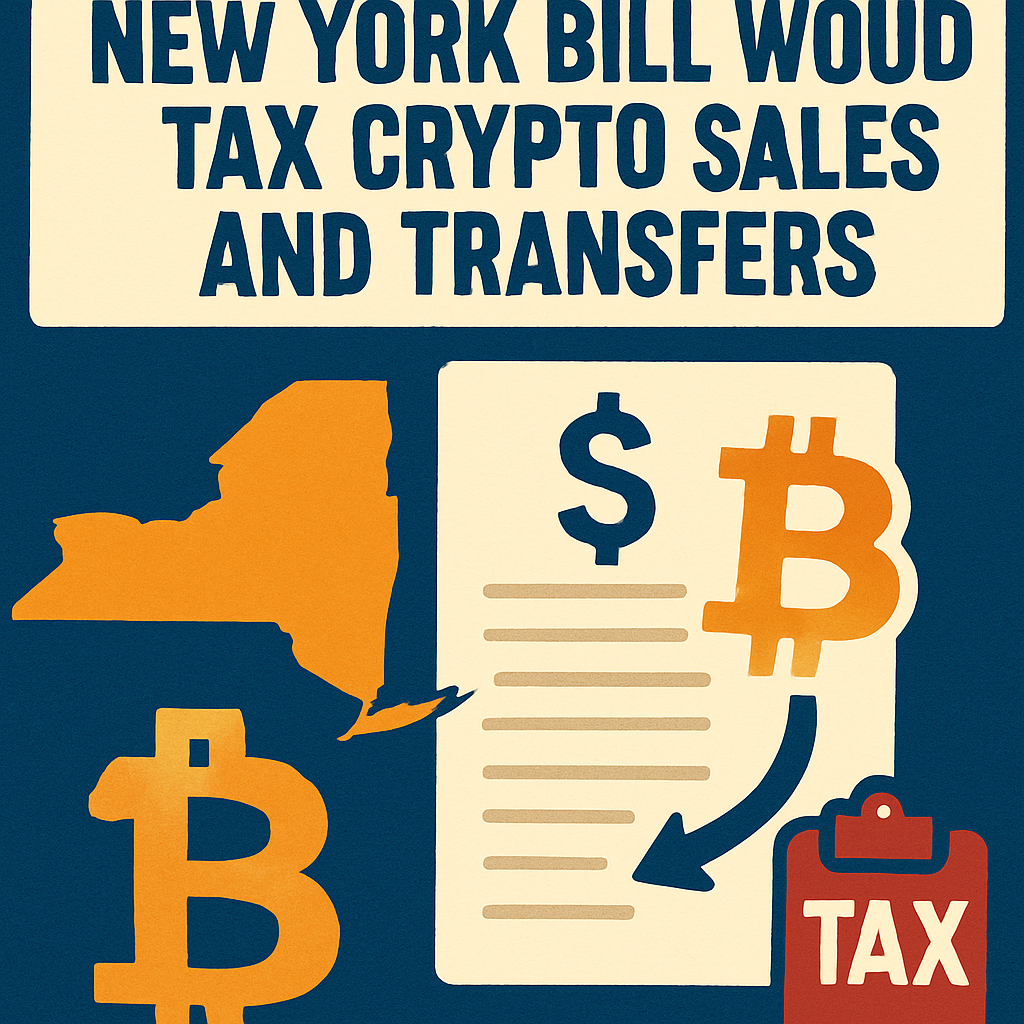Assemblymember Phil Steck introduced Assembly Bill 8966 to impose a 0.2% excise tax on digital asset transactions, covering sales and transfers of cryptocurrencies, tokens and non-fungible tokens. The levy, set to take effect Sept. 1, would apply to both buyers and sellers across all platforms operating or transacting within New York state.
The proposed excise tax would generate revenue earmarked for expansion of substance abuse prevention and intervention programs in upstate school districts. Under the bill’s provisions, all funds collected must be directed solely toward these educational initiatives, creating a novel revenue stream dedicated to public health support.
To become law, the measure faces a multi-step process: approval by the Assembly committee, a full Assembly vote, passage in the state Senate and the governor’s signature or sustained legislative override. If enacted, it would amend existing tax codes, defining “digital asset transactions” as any sale or transfer of digital currencies, coins or tokens.
Industry participants, including trading platforms and financial intermediaries, would bear compliance obligations, requiring adjustments to transaction reporting systems. Failure to collect or remit the excise tax could expose firms to state penalties and enforcement actions, raising operational complexity for exchanges and digital custodians.
Supporters argue that New York City’s deep financial markets and thriving crypto sector make the state poised to capture substantial tax revenue, given its status as a hub for institutional crypto adoption. Critics warn of potential market deterrence, as additional transaction costs may drive trading activity offshore.
Comparative analysis shows most states lack explicit crypto transaction taxes, with jurisdictions like Washington exempting digital assets entirely, while Texas maintains minimal oversight. New York’s move follows its landmark 2015 BitLicense framework, expanding the state’s regulatory footprint into tax policy.
Stakeholders await committee deliberations, where amendments may adjust the tax rate, broaden exemptions or extend implementation timelines. Advocacy groups on both sides are mobilizing, with school district representatives emphasizing funding needs and industry coalitions cautioning against adverse market impacts.
Should the bill clear New York’s legislature, it will serve as a template for other states considering digital asset taxation, potentially reshaping fiscal approaches to a burgeoning asset class nationwide.

Comments (0)